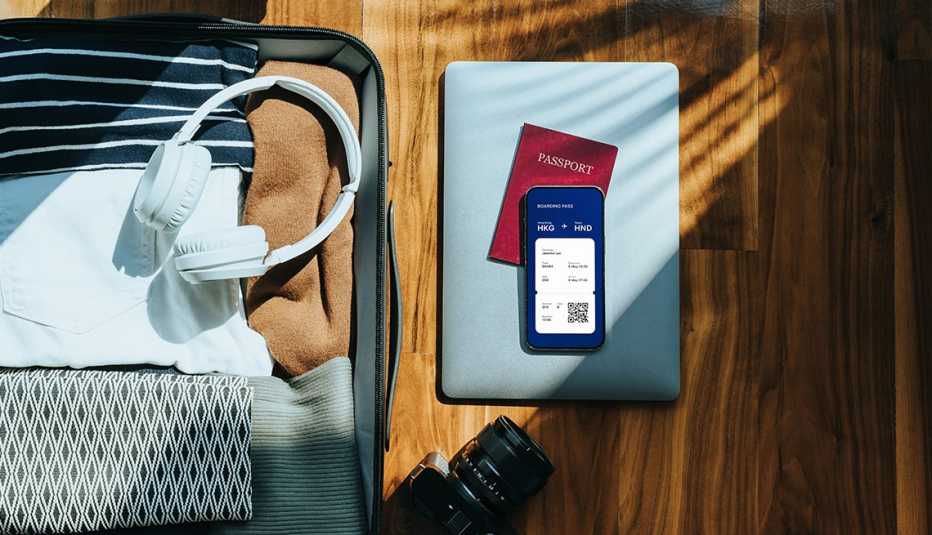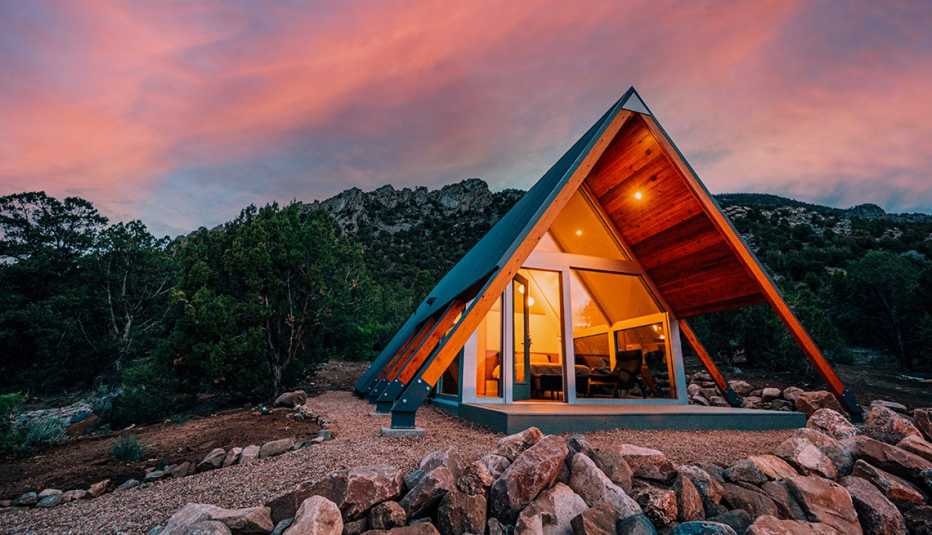AARP Hearing Center


Lodging can make or break a vacation. A top-notch hotel or rental property will leave you refreshed and primed to explore your chosen getaway — but lackluster accommodations could turn that dream trip into a nightmare. And with the 2025 AARP Travel Trends report showing that 70 percent of 50-plus adults plan to travel this year — up from 65 percent in 2024 —knowing the particulars of booking good lodging is more important than ever for older Americans.
That’s where our AARP Smart Guide to Vacation Lodging comes into play. This jam-packed resource covers the ins and outs of savvy vacation accommodations, including how to decipher trustworthy reviews, choose safe hotels, snag the best deals and find a cozy home away from home — even if just for one night. Ready to hit the road? Here’s everything to know before you book your next trip.
LODGING 101


1. Choose between a hotel …
Deciding between a hotel and vacation rental depends on the nature of your trip. If you’re traveling as half of a couple or as part of a small group, hotels might be your best choice. They provide perks like on-site restaurants, concierges to coordinate excursions, dedicated staff to clean your room before, during and after your stay, and bellhops to store luggage while you sightsee before or after checkout. You can find rooms via the websites of big hotel brands such as Hilton, Marriott and Hyatt; the designated website for a specific hotel property; or through third-party sites such as Expedia, Booking.com and Priceline. “If you want to walk and see things, you should get a hotel in the heart of the area [where you’re staying],” says Carolyn Sandgren Kempf, travel adviser and president of Elite Travel & Cruise in Cape Girardeau, Missouri.
2. … Or a vacation rental
If you’re taking a trip with your extended family or another large group, vacation rentals might better suit your needs. These offer residential-living amenities like full kitchens, spacious private outdoor areas for entertaining and relaxing, and separate bedrooms and bathrooms. However, most vacation rentals require you to do some cleaning before checkout, and you’ll probably need to bring your own food and other essentials. These properties can also be found on Expedia, Booking.com and Priceline, as well as on sites that specialize in vacation rentals such as Airbnb, FlipKey and Vrbo. You might also find vacation rentals through Craigslist, Facebook Marketplace or Google Travel. While most vacation-rental homes and condos tend to be in quieter residential areas, which many older adults may prefer, you can still find vacation-rental apartments along a city’s main drag.
3. Read the fine print
Before you book a rental — particularly in a big city — read up on the legalities. In some cities (such as New York), short-term vacation rentals are technically illegal (unless you’re solely renting a private room within the host’s home). In that case, you’re better off in a hotel to avoid last-minute cancellations or rental-home closures. For trips to get away from it all, be it a mountain or beach vacation, a rental property may be your best bet for privacy, remoteness and nature access.
4. Find pet-friendly accommodations
It’s tough to leave your four-legged friends at home — and increasingly, you don’t have to. These days, pets-welcome accommodations abound. You can filter your vacation rental or search for pet-friendly properties on sites like Airbnb, Vacasa and Vrbo. Make sure to study the fine print, such as pet fees and restrictions on size, breed, species and number of pets. Additionally, a growing number of hotels, both independent and chains, now offer dog- or cat-friendly accommodations. You can filter via hotel booking sites such as Booking.com, Trivago and Hotels.com, where you can read up on the pet stipulations for hotels before booking. When in doubt, it’s best to call the individual property for specifics.
5. Understand how to decode reviews
With countless reviews and review sites, it’s difficult to know who to believe. For that, our experts have some guidance: Don’t believe just one rogue review. Instead, “look for trends,” Kempf says. “If [separate reviewers] say something six different times, you can feel pretty confident you’re going to experience that as well.”
Additionally, Connor Griffiths, CEO of Lifty Life Vacation Rentals, suggests keeping your eyes open for a few red flags specific to property rentals. “If the most recent reviews are from a year or more ago, it may indicate that the property has not been well maintained or that the owner is not actively managing it,” he says, also noting that “overly positive or negative [reviews] may be fake or biased.”
Other ways to make sure that review is safe: Look up the reviewer to see what other reviews they’ve written, see what the middle reviews are saying and see whether the business or owner has responded to the worst reviews. If it’s genuine and pragmatic, that’s a good sign.
6. Find the vacation property’s designated website
The travel industry is full of booking sites for vacation lodging, but sometimes, the best way to save money is to avoid third-party sites and book directly with the hotel or the vacation rental owner, Griffiths says. If you know that a property has a specific name, like “Paradise House” or “Beach Life,” you can do an online search plus the city name on Google and find its designated website. Or, “try searching ‘vacation rental management [City]’ in the market you want to travel to,” Griffiths says. “This will help you identify local managers you could book directly with.” The same goes for hotels. Sometimes you can snag a deal with a hotel booking site, but it’s best to look at the hotel website or call the hotel in case they offer savings for direct booking.
7. Pay attention to fees
When you book through vacation rental sites like Airbnb or Vrbo, you’re typically charged roughly 15 percent in fees that you wouldn’t be charged if you booked directly with the property owner, he says. In the past, these fees weren’t transparent. In recent years, however, new laws and regulations at the state and federal level require full disclosure of all upfront fees.
8. Always look for a coupon
Search Groupon for Airbnb coupons — but make sure you apply before you book. Vrbo doesn’t offer traditional coupons but offers discounts through Vrbo, Rakuten, Groupon and Capital One Shopping.
9. Beware of scams
Scams are not uncommon when booking stays through third-party sites. For example, in 2021, AARP reported that the fake website Airbnb24hours tricked people into thinking they were visiting Airbnb’s site. “Unfortunately, scam artists sometimes use the public's trust in our brand to try to commit fraud,” Airbnb representatives told AARP.
These fake websites can potentially steal your personal information and credit card numbers, or install software on your device. Make sure you are visiting the official website for the platform.






































































You Might Also Like
25 Great Ways to Maximize Travel Reward Points
Tips to help you manage hotel, airline and credit card award systems
Recommended for You